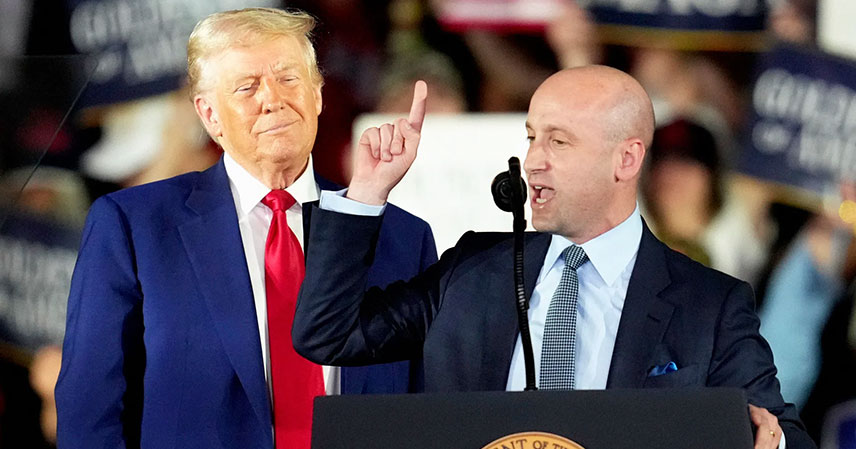The swift aftermath of conservative podcaster and activist Charlie Kirk’s murder sent shockwaves. Within hours, and notably without a suspect identified, a narrative quickly formed. High-profile figures on the right pointed fingers not at an individual, but at a broader entity: nonprofit organizations. This immediate pivot signaled a significant escalation in the ongoing political battles against civil society groups.
From Vice President JD Vance to deputy White House chief of staff for policy Stephen Miller, the message was clear. They quickly identified a different culprit. This collective accusation set a concerning precedent. It suggested a coordinated effort to frame a political agenda, rather than focusing on the criminal investigation itself. The implications for advocacy groups across the nation are profound and far-reaching.
The Immediate Aftermath and Political Accusations 🚨
The political response was almost instantaneous. On September 11, just a day after Kirk’s tragic death, US Representative Chip Roy of Texas took decisive action. He dispatched a letter requesting the formation of a select committee. Its stated purpose was to investigate “the money, influence, and power behind the radical left’s assault on America and the rule of law.” This move directly linked political dissent with potential criminal activity, a dangerous conflation.
President Trump further amplified this narrative on September 17. In a post on Truth Social, he declared “antifa” a “major terrorist organization.” This term, generally referring to antifascist activism, does not denote a specific, unified group. Trump’s designation was accompanied by a strong recommendation. He urged that “those funding ANTIFA be thoroughly investigated in accordance with the highest legal standards and practices.” This rhetoric created an immediate pathway for potential government scrutiny of a wide array of organizations.
The targeting of “antifa” is not new. However, elevating it to a “major terrorist organization” carries significant legal weight. It opens the door for enhanced surveillance, asset freezes, and other measures typically reserved for genuine terrorist groups. This move could also have a chilling effect on legitimate protest and advocacy. Many worry about the broad interpretation of who might be considered a “funder” of such activities.
The Justice Department’s Focus: Open Society Foundations ⚖️
The political rhetoric quickly translated into concrete action. According to detailed reporting from The New York Times, members of the Justice Department are actively drafting plans. These plans outline a potential investigation into Open Society Foundations (OSF). OSF is a global grant network. It was founded by billionaire George Soros, a long-time target of antisemitic and right-wing conspiracy theories.
Soros has been at the center of these theories for decades. He is often falsely accused of manipulating global events and funding destabilizing movements. The OSF itself supports civil society and democracy-promoting initiatives worldwide. It provides grants to thousands of organizations and individuals. Notable recipients include the American Civil Liberties Union (ACLU), Amnesty International, and various universities. This broad reach makes it a high-profile target.
In response to these accusations, OSF issued a clear statement. The organization asserted that the accusations were “politically motivated.” It firmly stated that its work is dedicated to “strengthening democracy and upholding constitutional freedoms.” This defense highlights the fundamental clash. It pits government scrutiny against the core mission of independent civil society. The potential investigation raises serious questions about academic freedom and journalistic independence.
The prospect of a DOJ investigation into a major philanthropic entity is deeply concerning. It suggests a weaponization of federal power against perceived political opponents. Such actions can deter other funders and organizations. They might become hesitant to support causes deemed controversial by those in power. This could severely restrict the space for independent advocacy and critical oversight of government.
A Precedent? Historical Context and Future Implications for Nonprofits 🌍
For many within the nonprofit sector, these developments are not entirely surprising. They represent the realization of a threat that has loomed for months. Brian Reich, a strategist whose company Little M Media works with nonprofit organizations, notes the gravity of the situation. “Funders have done the most thinking about this—some have been meeting quietly for months,” he explains. This indicates a proactive, albeit cautious, preparation for potential challenges.
The nonprofit community is now considering radical strategies to survive. Sources speaking to WIRED revealed several options on the table. These include establishing emergency funds to cover legal costs or operational gaps. Merging organizations together is another consideration if one or more face closure. Gearing up for extensive legal battles is becoming a stark reality. Some groups are even exploring relocating outside the US. Others are considering letting go of their 501(c)(3) tax status. They might re-register as businesses to avoid direct political pressure, a dramatic shift.
This situation echoes darker periods in history. Eras like the McCarthy era saw intense government scrutiny and persecution of groups deemed “un-American.” While the context differs, the underlying principle remains. It involves using state power to silence or dismantle organizations perceived as political adversaries. This creates a chilling effect on free speech and association.
The potential for investigations and new regulations could cripple the ability of many nonprofits to operate effectively. Their independence is vital for a healthy democracy. They often serve as watchdogs, advocates for marginalized communities, and providers of essential services. A concerted effort to undermine them represents a direct threat to the checks and balances inherent in a democratic system. Brian Reich’s assessment rings true: “We are going to have to think radically differently.”
Key Insights: Navigating a New Landscape for Civil Society ✨
- Escalated Political Weaponization: The immediate blaming of nonprofits, even before a suspect was identified, signifies a dangerous escalation in using political rhetoric and state power against civil society organizations. This move aims to delegitimize critical voices.
- Threat to Philanthropic Freedom: The potential DOJ investigation into Open Society Foundations, a major global grant network, sets a concerning precedent. It suggests that funding for democracy and human rights initiatives could be targeted, impacting global civil society.
- Existential Crisis for Nonprofits: The sector is bracing for an unprecedented challenge. Organizations are exploring extreme measures like emergency funds, mergers, legal defense, and even relocating or changing their legal status to navigate potential political and legal assaults.
- Chilling Effect on Advocacy: The aggressive stance from high-profile figures and the government’s investigative actions will likely create a significant chilling effect. This could deter legitimate advocacy, particularly for causes deemed politically sensitive, thereby weakening democratic discourse.
The events following Charlie Kirk’s murder have unveiled a concerning new front in political warfare. The targeting of nonprofit organizations, particularly those associated with progressive causes, marks a critical juncture. It challenges the very foundations of independent advocacy and civil society. As these groups adapt to an increasingly hostile environment, their resilience will be tested. The broader implications for democracy and the rule of law remain profoundly uncertain. Vigilance and a united defense of civil liberties are more crucial than ever.
Source: The Trump Administration Is Coming for Nonprofits. They’re Getting Ready



